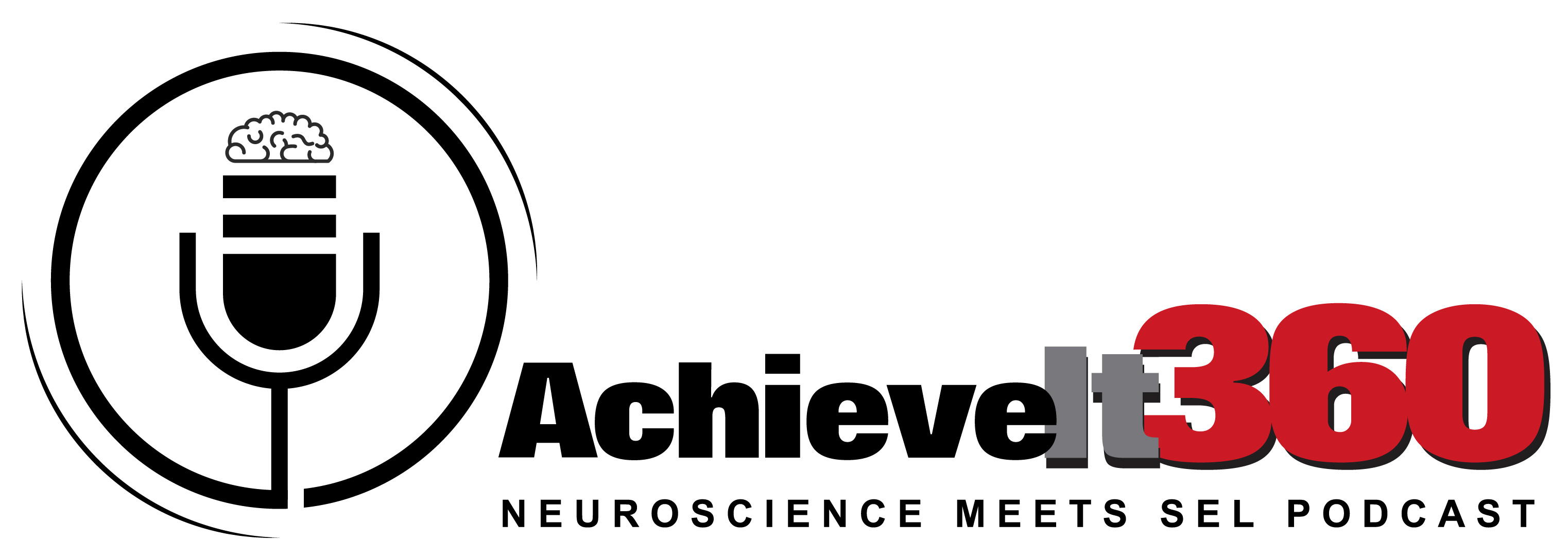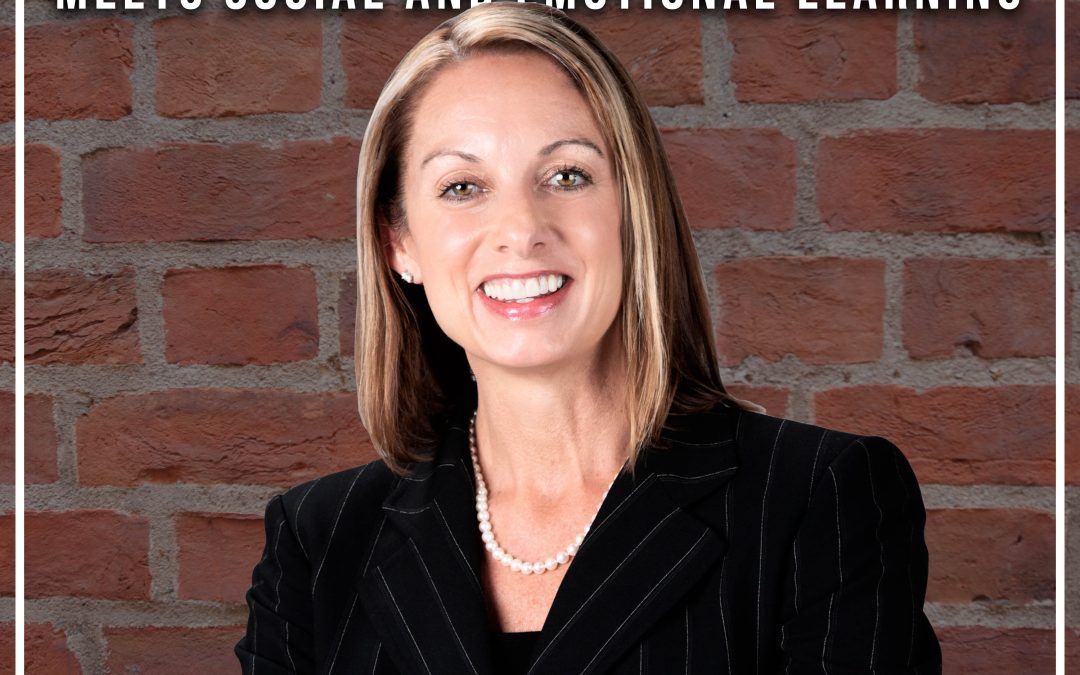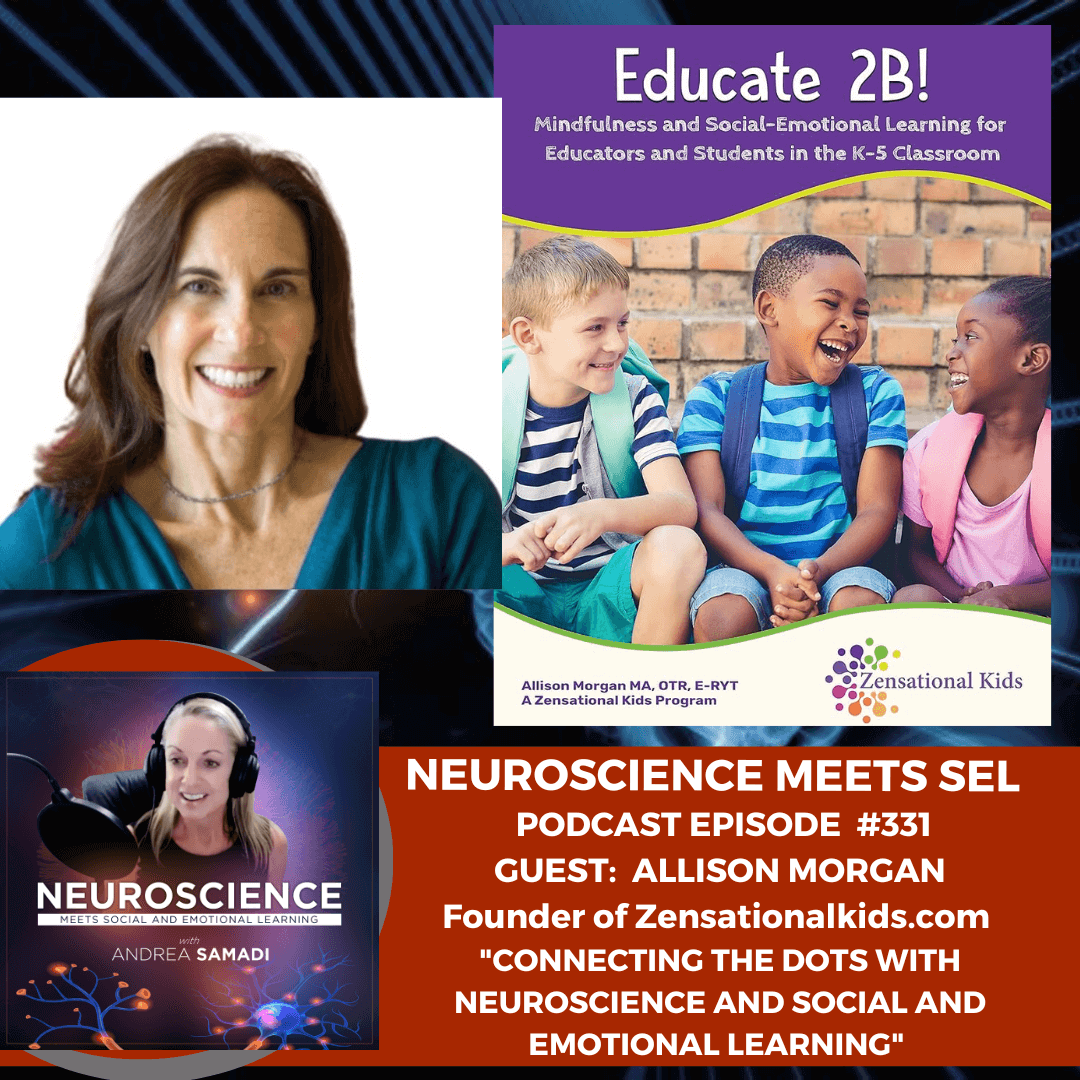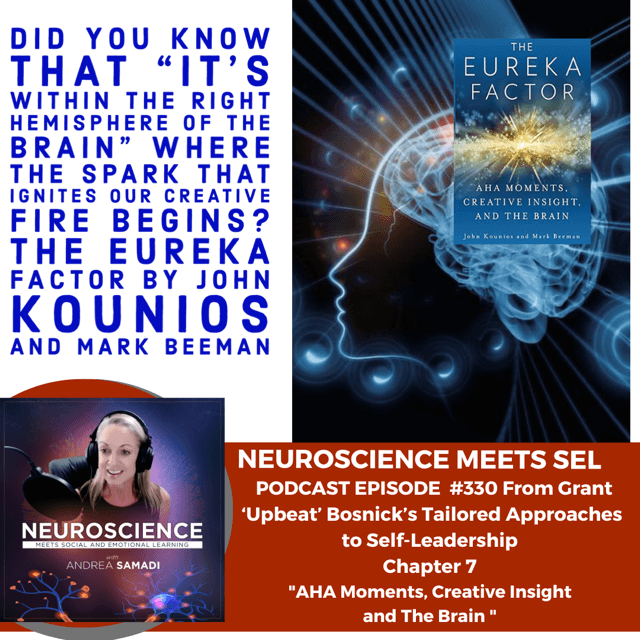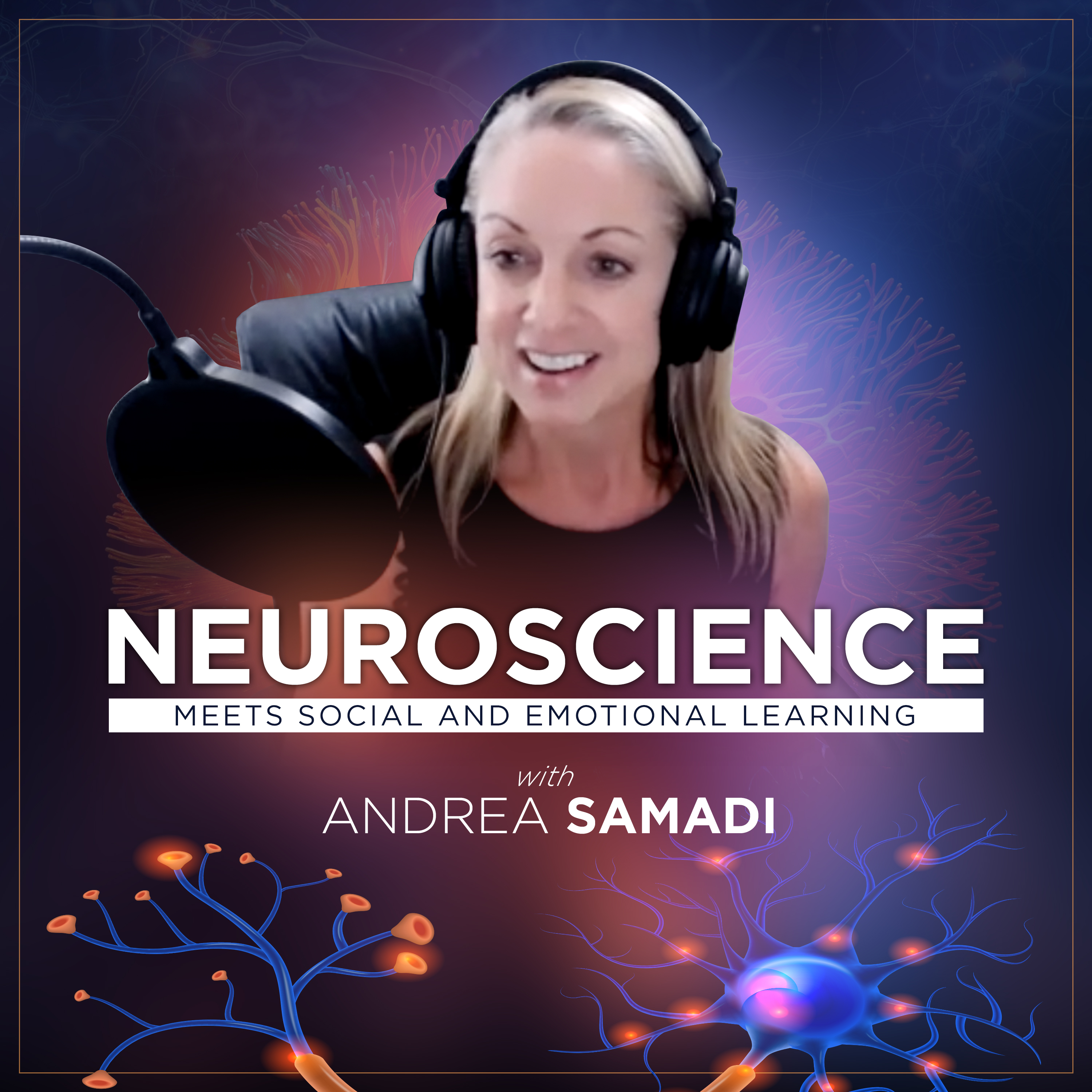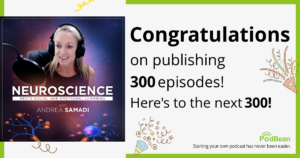This is EPISODE #35, focusing on understanding how the brain works to break those bad habits that zap your energy so you can have a highly productive 2020. Welcome to the “Neuroscience Meets Social and Emotional Learning” podcast, my name is Andrea Samadi, I’m a former educator who has been fascinated with understanding the science behind high performance strategies in schools, sports and the workplace for the past 20 years.
As we are well into our New Year, and new decade, I am sure you have been thinking about ways that you want to improve this year over the last. Have you thought about what specific actions you’ll take? Have you thought about the activities that you’ll start, stop, and continue? This is a good place to start as we are evaluating what worked for us last year, and keep doing more of what’s working, with an awareness of what didn’t work. Once we know what we want to change, then we will look at how the brain forms habits, so we can break them.
WHAT YOU WILL START THIS YEAR: Think about positive behaviors that you would like to implement in your life. Do you want to be more self-aware? More proactive? More forgiving? Do you want to take more action, or more doing vs thinking and planning? Look at the START/STOP/CONTINUE graphic in the show notes and think about what actions you want to begin this year.
WHAT YOU WILL STOP: Do you have some habits that you need to let go of? You know what they are, the ones that zap your energy, with an impact on your productivity. If you have some habits that are draining you, you’ll be well aware of what they are. Write them down. There’s never a better time than now to become aware of what needs to go this year.
WHAT YOU WILL CONTINUE: Think about the things in your life that gave you energy, joy, and happiness. You will probably want to keep those things on your list for 2020. Whatever brought you focus and inspiration, should stay this year.
How Exactly Do We Break Bad Habits?
This article was originally published on Achieveit360.com blog.
We Must Understand How the Brain Learns to Forms Habits, in Order to Break Them.
I learned the idea of “neurons that fire together, wire together” from Mark Robert Waldman, (from EPISODE 30)[i] the world’s leading expert on communication, learning and the brain. If you think about it, it’s kind of obvious—where your attention goes, your energy flows. Never underestimate your own power and be mindful of where you place your attention, especially when you want to improve your focus. This year be intentional about where you are placing your attention. When “neurons are out of sync, they fail to link”[ii] so when you are not working on or thinking about something that you want, maybe because your attention is being taken away by something else, the neurons will not link, the neural pathways will not be formed, and eventually the neurons for what you want will prune away, since you have not applied the correct focus with your attention. This is exactly why people fail to achieve what they want. They have not properly applied their attention. So how can we safeguard ourselves from this happening in 2020?
Let’s dive deeper into our brain to see what’s happening.
We have around 100 billion brain nerve cells called neurons that connect the brain to the body. “If you took 100 billion sheets of paper and stacked them on top of each other, it would be 5,000 miles high. That’s the distance from Los Angeles to London!” (Dr. Joe Dispenza, TED TALK, Feb 8, 2013). This puts the vastness of your brain into perspective.
Each neuron has one axon with many tails (terminals). When you are learning, the axon terminals send electrochemical messages to other neurons across tiny spaces called synapses.
Learning creates a synaptic connection when you are thinking, feeling, or actually doing something new. New neural pathways are formed. This is how you create a new habit.
Breaking a habit is just the opposite; by avoiding certain thoughts, feelings or actions, your impulses or neural connections become weaker and weaker. Just as knowledge and skills are constructed in our brain with focus, they also diminish without the focused attention. As we learn, our dendrites actually grow as they make new synaptic connections. Learning something new happens when we forge these new connections.
“Neurons that fire together, wire together” and “neurons that are out of sync, fail to link.”
It is easy to see now that “we are what we think about” or “we create our reality” as we do reinforce our neural pathways with attention to the habits or goals that we want. We even reinforce what we don’t want when we are thinking ” I don’t want that piece of pie” or ” I don’t want this project to fail” or “I don’t want to lose that game” and so on. The neural pathways for “I don’t want this or that” are being formed! See how tricky this can be. Our brain only knows what we tell it, so we must be very careful with our thoughts, feelings, and actions, as they will cause our conditions, and circumstances.
Are You Ready to Break Some Bad Habits?
Now that we can clearly see how the brain works, we must now apply this to our daily lives if we expect change. This is the hard part. Change is difficult, uncomfortable, and hard work. Most people won’t do this, but if you are ready to take your results to the next level, stay with me here. Anyone can break out of old habits and personalize this new knowledge for new results. Once we are aware of what we want to change, then we must take the action steps needed for this change to take place. To mentally prepare for a whole new way of thinking, being and taking action, I highly recommend reading John C. Norcross’ book Changeology: 5 Steps to Realizing Your Goals and Resolutions.[iii] This book will prepare you to accomplish something that you have never done before. You can find a PDF overview[iv] of the book to get an idea of the 5 steps he takes you through in pursuit of what change you want to tackle.
Here Are 5 Ideas for Breaking Habits that No Longer Serve You
1. Replace the bad habit with a good habit and begin to strengthen the new neural pathway. If you want to give up coffee in the morning, replace it with hot lemon water. With time, the neural pathway of the old habit of drinking coffee will prune away with the new habit of drinking hot lemon tea. Write out any bad habits that depletes your energy, and beside the habit, write out something more positive that you will replace the habit with.
Put This into Action:
Here’s an example: Every year, at the start of the year, sometimes over the summer, I do a no sugar, no alcohol challenge, for at least for 30 days. This year, to launch the new decade, I am doing the challenge for 90 days. If you have never done this, it really is a powerful activity. When you cut out toxins, or foods that are known to be bad for our bodies and brain, something amazing happens. After the first 2 weeks, the cravings go away, and you won’t miss the food you used to enjoy. It will actually taste bad if you sneak a taste because your brain and body has become used to the clean, healthy foods, making the bad foods feel poisonous, which helps to continue with the new habit.
You will gain some new awareness about yourself with this challenge. When I cut out drinking wine with my dinner, I replaced wine with carbonated water, (following the tip of replacing the bad habit with a more healthy one) but I drink the water in a wine glass. I realized that it’s not the wine I miss, it’s actually the glass! I would love to hear about any new awareness’s you have had if you have eliminated toxic foods from your diet to help others to perhaps give it a shot.
2. Try brain-training. Over time and repetition, you can change old habits, and beliefs with guided meditations or affirmations. I use John Assaraf’s programs at www.myneurogym.com and Dr. Daniel Siegel’s (EPISODE 28) Wheel of Awareness. [v]There are many different meditation or relaxation apps you can download and use on your phone. The key is to use something. Visit our episode #25 where Mick Neustadt discusses how meditation and mindfulness changes your life.[vi]
Put This into Action
If you want to change your brain, old patterns, habits or beliefs that operate within your subconscious mind, brain training is an excellent first step, but it’s not a quick fix. Results with brain training will come with time, effort, practice, persistence and daily application. One day, you will be able to articulate the affects, but it doesn’t happen overnight. Brain training definitely has helped me to relax about certain things, bringing me more peace and has been well worth the effort. If you are pressed for time, you don’t need to spend a long time doing this. Just a few minutes a day will allow you to calm your brain to improve your results and give you a sense of peace. You can search for mindfulness apps[vii], or play music that relaxes you.
3. Create a daily habit tracking sheet to keep track of your daily habits. If you recall from Kent Healy’s episode 33[viii] that we all have the same amount of time, and that the most successful people in the world manage their time really well.
Put This into Action
To better manage your time and activities block off your activities that are non-negotiable on your calendar, and then you can add in negotiable activities around what you must do. Be clear about what could possibly take you away from the activities you have blocked off so that you don’t just cancel the important parts of your day when you are called to do something else. Protect your time, as it is your greatest asset. With the proper use of your time, you will see your results will soar.
Click here if you would like to access the tracker that I use.
4. Replace negative thinking with positive thinking. In order to break negative thought patterns, or ruminating, use something in your head to break this destructive pattern.
Put This into Action
An effective strategy used in cognitive behavioral therapy[ix] is to say the word “SWITCH” in your head as you focus on switching the negative emotion that you feel to something more positive. We all have automatic negative thoughts that come into our head at times, but we must have a strategy to stop them from ruminating or continuing in a loop, since we know that switching off these negative thoughts is an important step towards moving us towards our goals. I’ve always used the strategy of saying “STOP” when this happens and changing the thought pattern in my head to something more productive.
5. Find an accountability partner who you can count on to keep you on track with your goals. Entrepreneur, investor, author and public speaker Gary Vaynerchuk did this when he wanted to lose weight. His trainer followed him around every minute of the day to keep him on track. You should be able to change your habits without having to go this extreme, but if you are still struggling, there are many ways to reach out to others and ask for help.
I hope you have found these tips helpful and would love to hear from you if you do implement any of these ideas. I’m excited about the next few guests to launch the New Year with ideas, research and strategies that are being implemented around the world to improve performance in schools, sports and the workplace. Stay tuned! Happy New Year!
RESOURCES:
The Ultimate Guide: Mindfulness and Meditation for Beginners
REFERENCES:
[i] Neuroscience Meets Social and Emotional Learning Podcast EPISODE 30 with Mark Robert Waldman https://podcasts.apple.com/us/podcast/neuroscience-researcher-mark-robert-waldman-on-12-brain/id1469683141?i=1000458597396
[ii] Dr. Joe Dispenza and Lewis Howes “Where Your Attention Goes, Your Energy Goes.” (YouTube Published July 25, 2019) https://www.youtube.com/watch?v=Om435J7u1T8
[iii] John C Norcross Changeology https://www.amazon.com/Changeology-Steps-Realizing-Goals-Resolutions-ebook/dp/B006VJMYQC
[iv] PDF Overview of the book Changeology http://www.isihome.ir/freearticle/ISIHome.ir-21161.pdf
[v] https://podcasts.apple.com/us/podcast/clinical-professor-psychiatry-at-ucla-school-medicine/id1469683141?i=1000456048761
[vi] https://podcasts.apple.com/us/podcast/mindfulness-meditation-expert-mick-neustadt-on-how/id1469683141?i=1000453919865
[vii] https://www.healthline.com/health/mental-health/top-meditation-iphone-android-apps#the-mindfulness-app
[viii] https://podcasts.apple.com/us/podcast/author-kent-healy-on-managing-time-our-greatest-asset/id1469683141?i=1000461240028
[ix] What is Cognitive Behavioral Therapy with Therapist Kati Morton YouTube uploaded Sept. 23, 2013 https://www.youtube.com/watch?v=g7B3n9jobus
Podcast: Play in new window | Download
Subscribe: Apple Podcasts | RSS
